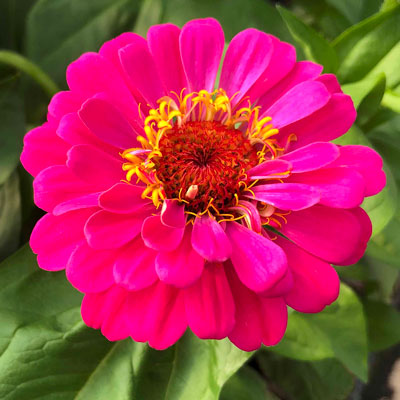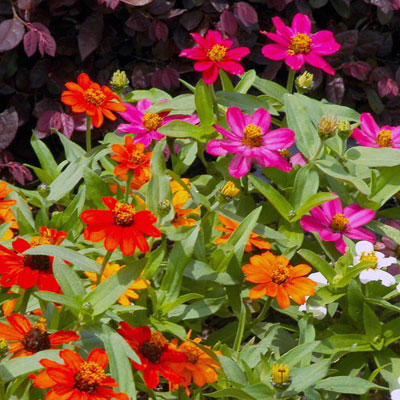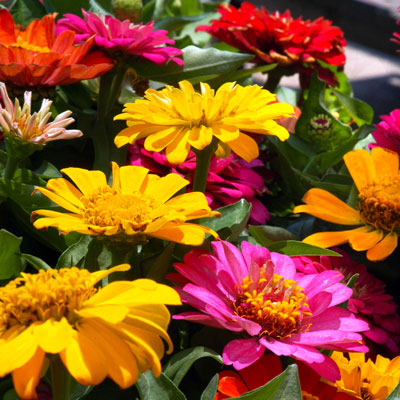Zinnias of a different shade

Ever since I was a little kid zinnias have been among my favorite garden flowers. My dad helped guide my juvenile fingers to plant them in my very first garden in College Station. That was years before you could go into a nursery and buy a flat of potted transplants to take home for almost instant color.
When I began my graduate research at Colorado State in the late 1960s part of my responsibility was caring for a one-acre nursery screenhouse that contained every possible size and manner of zinnias. They were the breeding stock for a massive hybridization project that I believe resulted in the famous Peter Pan series. I was simply the water boy. I knew nothing. I just did what I was told. My real work was in breeding carnations.

And now we have so many great bedding zinnias, notably the award-winning Profusion zinnias that hold up so well to our Texas conditions and just keep on blooming. Gotta love those zinnias!
But when I transferred from A&M to Ohio State one of the things I noticed was how vivid the colors of the zinnias were in the gardens up north. Much deeper and richer it seemed that what I had remembered.

It wasn’t until Lynn and I moved back to Texas and I planted a big bed of zinnias for my fall garden that I realized that my spring zinnias were bleaching in the intense early summer sun and heat. The fall zinnias, blooming in great cool weather, were spectacular.
So, every year since then I’ve encouraged Texas gardeners to plant zinnia seeds or transplants in mid-August (Central and North Central Texas) through early September (South Texas) and compare them. Less powdery mildew than spring plantings. And a ton more color. See if you don’t agree!
Very important note…
When selecting zinnia (and marigold) transplants, it’s always best to buy them in bud but not in flower. The transplants will re-establish more quickly and put on a better show faster than if you buy plants already in full bloom.
